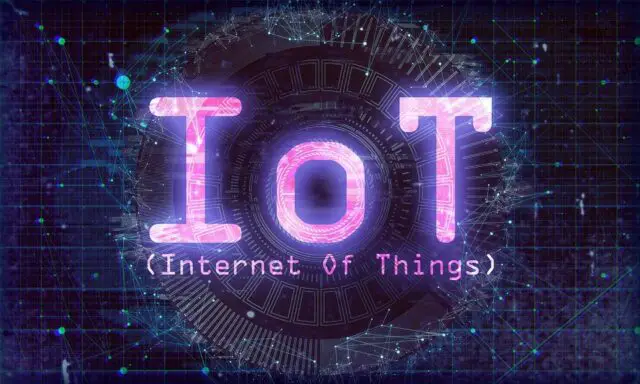
The Internet of Things (IoT) has rapidly penetrated the market and governments globally: telemedicine receives and monitors patient data in remote areas, predicts where pests will appear on crops, and energy distribution companies optimize and automate their processes to save resources.
The IoT is an emerging technology that connects the physical world with the virtual one. In other words, it refers to objects that we do not normally associate with computers, but that use the Internet and on many occasions collect data for analysis. For this reason, the IoT is related to other technologies of the fourth technological revolution such as Big Data and Artificial Intelligence (AI).
The relationship between these allows the automation of processes, the prediction of actions, monitoring without human intervention, and the customization of services. This type of technology is already a part of many homes and people’s daily lives through mobile phones, smartwatches and speakers, cars with crash sensors, remotely controlled appliances, and others.
Different publications from companies such as Huawei, McKinsey, the Inter-American Development Bank, and Cisco, compiled by the latest report of the Information and Knowledge Society Program (Prosic) of the University of Costa Rica (UCR), point to accelerated growth in the adoption of this type of device and its value in the market.
Publications estimate that this technology will reach up to 100 billion connections by 2025 with a market value of up to $ 11 billion. It is important to note that there are important variations between publications on these calculations, which makes it difficult to trust the figures, but even the most modest figures point to a huge growth in this market.
In Latin America

Costa Rica, Chile, and Brazil are the most prepared countries in the region to boost this market, according to a 2018 Deloitte study retrieved by the Prosic report. However, to date, our country does not have specific public policies to promote it.
Costa Rica has been incorporating it in certain activities and the Government knows that it is necessary to incorporate these technologies, but it was not possible to find a specific project or concrete actions to implement the IoT. The efforts found are typical of the universities that have opened courses and technicians”, explained Keilin Molina, author of the IoT chapter of the Prosic report.
Brazil was the first country in Latin America to adopt a national IoT strategy in 2017, the report notes. Among the initiatives proposed and implemented is the use of Big Data to control traffic, reduce waiting lists in hospitals, increase crop productivity, and improve response to climate change and natural disasters. In other countries such as Colombia, Mexico, and Argentina there are also incipient initiatives.
Advantages and challenges for the country
According to Molina, the specialized human resource and the Internet infrastructure in the country are what gives the advantage to join this type of technological development. “We don’t have many professionals specialized in IoT yet, but we have very well-trained engineers and technicians specialized in hardware, networks, and software. The Wi-Fi coverage in the country can improve, but it is good, which also favors us,” said Molina.
In Costa Rica, 96% of households have access to a mobile phone, 86% to the Internet, and 46% to a computer, according to 2019 data collected by the National Institute of Statistics and Censuses (INEC).
Despite the level of access and coverage that exists in the country, digital literacy is a challenge that the country has to face for the development of this type of technology, the market, and its incorporation into public policies.
The Prosic report attributes to the low levels of digital literacy that more than half of Costa Rican households do not have Internet: “15.5% say they do not know how to use the Internet, while 38.5% say they do not need Internet”
Although the second percentage cannot be directly determined as digital illiteracy, the report says that it is highly probable that it is for this reason, since today the Internet is a fundamental tool in all areas of our daily lives.
These data also do not fully reflect the level of digital illiteracy as many households may have access to the Internet and various devices that use it, but may not know how to take advantage of technology.
“There is a part of the population that only uses mobile devices to call and send messages and the IoT is related to how we can control the washing machine from the phone, for example, but if people are not literate with the utilities they have access cannot take advantage of them”, lamented Molina.
Cybersecurity is another challenge for the development of the IoT at a global level, the development of technology advances faster than the legislation that regulates it, and that protects users and their data. In this matter, Prosic recommends an “urgent reform” to the personal data protection regulations of Costa Rica so that it complies with international standards and adapts to local needs.
“Along the same lines, the Agency for the Protection of Inhabitants’ Data (Prodhab) must be strengthened, its independence must be sought and resources must be guaranteed so that it can fulfill the objectives and functions assigned by law,” says the report.
Finally, the two factors, cybersecurity, and digital literacy are manifested together in a symptom of digital culture worldwide: 88% of Internet users accept the terms and conditions without reading them, according to a 2018 study retrieved by Prosic. It is a worrying data, taking into account the risks of the exploitation of this by unscrupulous developers who abuse this advantage”, adds the report.
Artificial intelligence, Big Data, and the development of the IoT represent an innumerable amount of opportunities to improve the lives of all people and the development of countries, but at the same time it requires ethical and technical discussions that ensure a safe and respectful regulatory framework of human rights, the report concludes.

